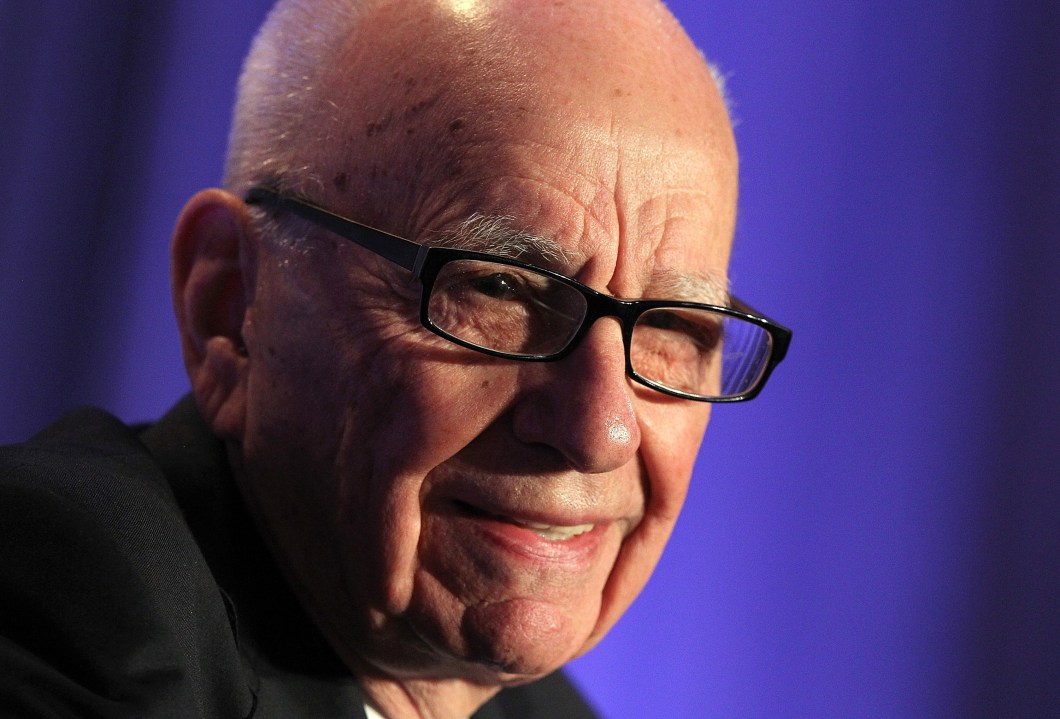Last year I wrote that the Leveson inquiry would suit Jeremy Hunt rather well. He had appointed Lord Justice Leveson, a judge with little previous experience of media law to sit alongside a remarkably undistinguished panel of assessors. They would inflict more blows on the battered cause of freedom of speech, I thought. But they would steer well clear of the corrupt relationship between Rupert Murdoch and successive governments, which had allowed his hacks to believe that the law of the land did not apply to them.
I underestimated Murdoch’s titanic self-pity. The old American definition of an honest politician is that ‘once he’s bought, he stays bought’. The same does not apply to the Dirty Digger. Hunt is the latest in a long line of ministers to find that you can’t buy Murdoch. You can only hire him. He’s going down, and is determined to take with him all those in the London and now Edinburgh governments who offered him favours in return for propaganda.
As the Leveson inquiry at last looks at what matters, a new criticism has arisen. I’ve heard it muttered in private by the many good journalists at the Times, who are suffering from guilt by
association, and by readers who wonder what all the fuss is about. Dan Hodges put it well in the Telegraph yesterday when he said:
On this reasoning Miliband should have gone for Cameron on the economy in PMQs today — particularly when the dive back into recession has spectacularly vindicated Ed Balls’ warnings — and not wittered on about the improper relationship between Hunt and the Murdochs.‘The last thing Ed Miliband needs is for him and his shadow ministers to be seen chasing around after television mergers. Jobs, the economy, the soaring cost of living. These are the issues that Labour needs to be hammering over the next ten days. Jeremy Hunt is a distraction. Not necessarily the most welcome one for David Cameron, but a distraction all the same.’
The argument is true — if the Tories are thrown out at the next election it won’t be ‘the Sun wot lost it’ but Osborne and the Treasury. However, it misses the importance of the campaign against Murdoch for Labour. When Miliband became leader, no one knew what the point of him was. The day he took on the Murdoch empire, against all the advice of the conventionally minded pundits, was the making of him. He showed that, for all his faults, he understood the post-crash world, and knew that it was no longer acceptable to cut sweetheart deals with plutocrats. (It had never been acceptable in the first place, of course, but when most people were getting richer it seemed to matter less.) Murdoch has also been the making of Tom Watson and turned him into a formidable front-rank politician. You should not underestimate his bravery, or the bravery of Paul Farrelly and Chris Bryant. They knew that if they challenged Murdoch, they would have to endure the sheet-sniffing of his tabloid hacks and condescension of his broadsheet hacks. Any affair they were having would in all likelihood end up in the papers. But they still did it, and largely for the right reasons. If Labour looks a little stronger today, and a little less like a party destined to spend a generation in opposition, it is in part because of the self-confidence breaking with Rupert Murdoch gave it.








Comments